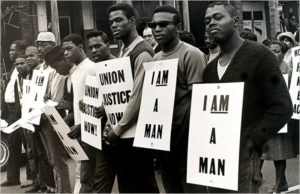“The significance of slavery in the United States to the whole social development of America lay in the ultimate relation of slaves to democracy. What were to be the limits of democratic control in the United States? if all labor, black as well as white, became free were given schools and the right to vote, what control could or should be set to the power and action of those laborers? was the rule of the mass of Americans to be unlimited, and the right to rule extended to all men regardless of race and color, or if not, what power of dictatorship and control; and how would privilege be protected? This was the great and primary question which was in the minds of the men who wrote the constitution of the United States and continued in the minds of thinkers down through the slavery controversy. It still remains with the world as the problem of democracy expands and touches all races and nations”. (Black Reconstruction, W.E. B. Du Bois)
Never would I have thought that in 2016 I would be trying to educate my peers on the same issues that Du Bois wrote about in Black reconstruction and The Souls of Black Folk. Being a young black woman in College, in 2016, is quite the achievement in the eyes of many, but from my point of view its what I’m supposed to be doing. I never thought about the significance of this until reading The Souls of Black Folk by W.E. B. Du Bois. He made a point to explain the constant struggle faced by Americans during and after slavery. The question posed by Du Bois was “how does it feel to be a problem?” this made me think, as I remember talking about the obvious injustices that are currently happening, or at least to me they are, when many of my peers reacted to my frustration in a way where this made sense. I have been asked questions such as “why is this still relevant?”, “I don’t see color, this is not a black and white thing?”, “why are you mad?” and “slavery ended along time ago why does it matter?”.
According to history, this is extremely relevant to understanding why there are many people advocating for the #blacklivesmatter campaign and addressing police brutality towards minorities. The fact that African Americans have to face the brutal history of being uprooted from their native land and taken to an unknown one, to then be converted into being recognized as less than a human, simplifies the relevance of slavery and American History. It is important to understand the role that the “negro” had in society during the times of slavery and after, Du Bois noted that “what need of eduction, since we must always cook and serve?” and the nation echoed and enforced this self criticism, saying: be content to be servants, and nothing more; what need of higher culture for halfmen?”(The Soul of Black Folk). Therefore by dismissing the significance of an historical event, is another way of not facing the brutal and factual past that many people suffered.
Du Bois mentioned in Black Reconstruction that, “the system of slavery demanded a special police force and such a force was made possible and unusually effective by the presence of the poor whites”, this a key factor in understanding that blacks in the United States in that day an age was considered to be less of a person than even poor whites who were in the same economical category. Also, they were used as the force to reinstate that sad truth. Looking at certain instances of Police Brutality, this is reminiscing of this concept, being that a person of color has to behave a certain way around the police in order to not loose their life or face harsh physical punishment.
Surprisingly, in today’s society many schools do not give a well rounded and accurate depiction of African American History, including slavery in the United States. The propaganda of history is part of the reason why many students have fallen into ignorance about the facts of slavery. Many textbooks in the past inserted historical ‘facts’ explaining the reconstruction period of the United States after the civil war that created the mentality that blacks were responsible for their own misfortune. For example, “some negroes spent their money foolishly, and were worse off than they had been before. (Carl Russell Fish, “History of America”, p. 365.)” and “In the exhausted states already amply ‘punished’ by the desolation of war, the rule of the Negro and his unscrupulous carpetbagger and scalawag patrons, was an orgy of extravagance, fraud and disgusting incompetency. (David Saville Muzzey, “History of the American People”, p. 408.)”. This type of rhetoric is what clouds peoples understanding of the relevance of addressing this important piece of history in the American society. The constant fight of refuting these claims was and still is relevant today, especially for those who fail to understand the importance of facing the uncomfortable truths about past history.

